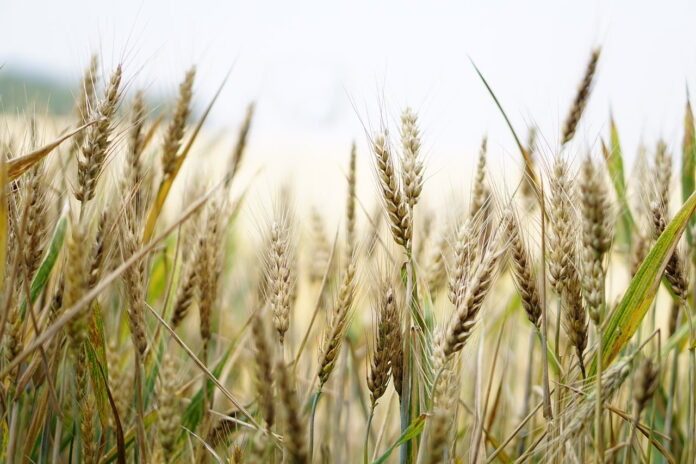The concept of eco-friendly farming is a beacon of hope in a world grappling with environmental degradation and the challenges of feeding a growing population. This approach to agriculture emphasizes the need to harmonize with nature, rather than dominate it. Small-scale farmers are increasingly adopting sustainable practices that not only protect the environment but also enhance food security and support local economies.
Small-scale eco-friendly farming is characterized by its low carbon footprint, reduced chemical use, and reliance on renewable resources. By focusing on local production and distribution, these farms minimize transportation emissions and promote fresher, healthier food options. The intimacy of small-scale operations allows for meticulous attention to ecological balance, soil health, and biodiversity, which are often overlooked in larger, industrial farming systems.
The transition to sustainable practices on a small scale is not without its challenges. Farmers must navigate economic constraints, market pressures, and the steep learning curve associated with new techniques. However, the long-term benefits of eco-friendly farming – such as improved soil fertility, water conservation, and resilience to climate change – make it a compelling model for the future of agriculture.
As consumers become more environmentally conscious, the demand for sustainably produced food is rising. This shift presents an opportunity for small-scale farmers to lead the way in eco-friendly farming, demonstrating that agriculture can be both productive and harmonious with the planet.
The Pillars of Sustainable Agriculture: Principles and Practices for Eco-Friendly Farming
Sustainable agriculture rests on several key pillars that guide eco-friendly farming practices. The first is environmental stewardship, which involves managing natural resources wisely to ensure that they are available for future generations. This includes maintaining healthy soil, conserving water, and preserving biodiversity.
The second pillar is economic viability. For farming to be sustainable, it must be profitable. Eco-friendly farmers often find that by reducing inputs such as synthetic fertilizers and pesticides, they can also reduce costs. Additionally, they can command higher prices for organic or sustainably produced goods, which are increasingly in demand.
Social equity is the third pillar, emphasizing the need for fair labor practices and community engagement. Small-scale eco-friendly farms often become integral parts of their communities, providing local jobs and fostering connections between consumers and the source of their food.
Finally, farm management practices such as crop rotation, intercropping, and the use of cover crops are essential for maintaining soil health and preventing pests and diseases. These practices reduce the need for chemical inputs, thereby protecting the environment and human health.
Innovative Techniques in Small-Scale Farming: Maximizing Output While Minimizing Impact
Small-scale farmers are at the forefront of innovation, constantly developing new methods to increase productivity without harming the environment. One such technique is agroforestry, which integrates trees into farming systems. This practice can improve soil quality, increase biodiversity, and provide additional income from timber or fruit.
Another innovative approach is the use of permaculture principles, which mimic natural ecosystems to create self-sustaining farms. Permaculture designs often include a variety of plant and animal species that support each other, reducing the need for external inputs.
Aquaponics and hydroponics are soil-less farming methods that can be highly efficient in terms of water and space usage. These systems can be particularly useful in urban environments or areas with poor soil quality. By recirculating water between fish tanks and plant beds, aquaponics creates a symbiotic environment that conserves water and nutrients.
Small-scale farmers are increasingly turning to organic pest management strategies, such as biological control – using beneficial insects to combat pests – and botanical pesticides derived from plants. These methods reduce the reliance on synthetic chemicals that can be harmful to the environment and human health.
The Role of Technology in Sustainable Agriculture: Tools and Solutions for the Eco-Conscious Farmer
Technology plays a crucial role in advancing sustainable agriculture, even on a small scale. Precision farming tools, such as GPS-guided equipment and soil sensors, allow farmers to apply water, seeds, and nutrients more efficiently, reducing waste and environmental impact.
Mobile technology is also empowering farmers with access to real-time data, weather forecasts, and market information. This connectivity helps them make informed decisions about planting and harvesting times, as well as finding the best markets for their produce.
Renewable energy technologies, such as solar-powered irrigation systems, are reducing the carbon footprint of farming operations. These systems provide a clean, sustainable energy source that can power farms off the grid, making them more resilient and self-sufficient.
In addition, software for farm management can help farmers track their inputs and outputs, monitor the health of their crops and livestock, and plan for the future. This data-driven approach can lead to more efficient and sustainable farming practices.
Community and Market Dynamics: Supporting Local Eco-Friendly Farms for a Greener Future
The success of small-scale eco-friendly farming is deeply intertwined with community support and market dynamics. Consumers play a vital role by choosing to buy local and sustainably produced food. This not only reduces the carbon footprint associated with long-distance transportation but also ensures that money spent on food goes directly to supporting local farmers and economies.
Farmers’ markets, community-supported agriculture (CSA) programs, and farm-to-table restaurants are growing in popularity and provide direct channels for consumers to support eco-friendly farms. These initiatives foster a sense of community and connection to the land, which is often lost in the conventional food system.
Local governments and organizations can also support sustainable agriculture through grants, subsidies, and training programs. These resources can help small-scale farmers adopt eco-friendly practices and navigate the challenges of sustainable farming.
Finally, education is key to the growth of sustainable agriculture. By teaching the next generation about the importance of eco-friendly farming and providing them with the skills to implement sustainable practices, we can ensure a greener future for agriculture.
Small-scale eco-friendly farming offers a viable path toward a sustainable agricultural future. By embracing innovative techniques, leveraging technology, and fostering community support, small-scale farmers can lead the way in creating a food system that nourishes both people and the planet.
